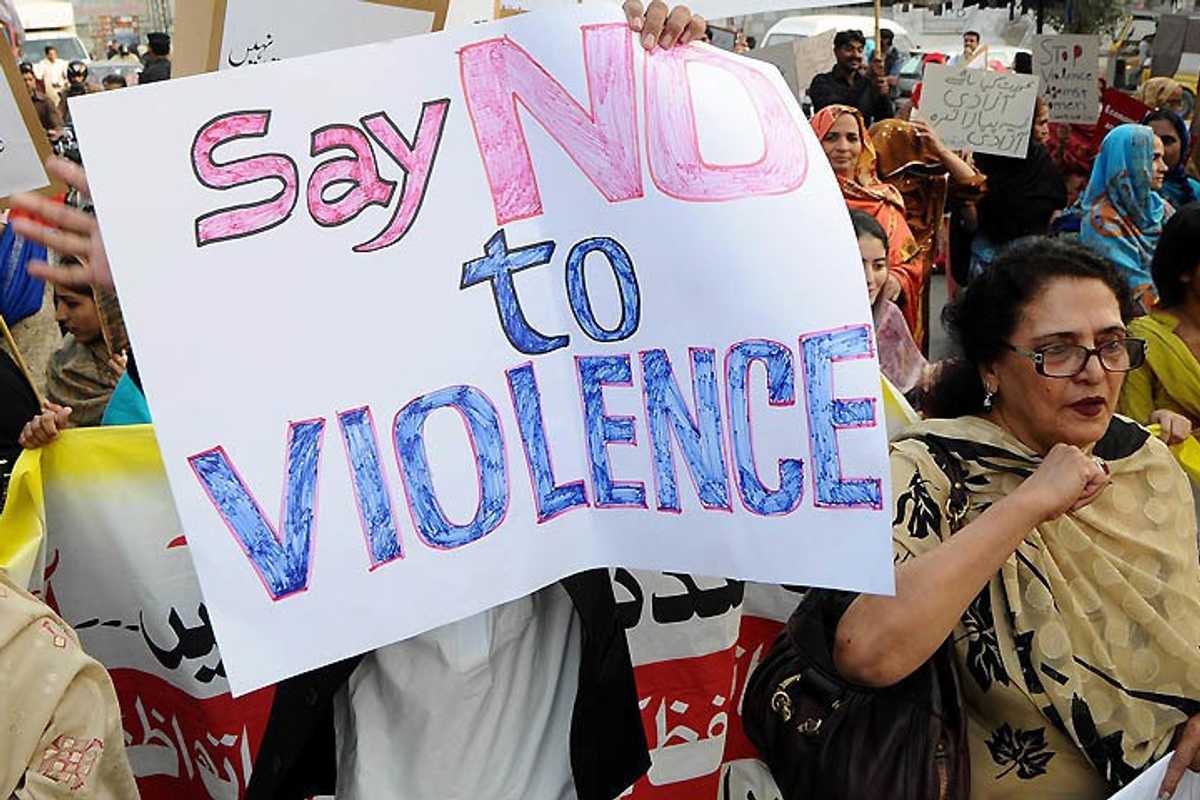Pakistan moves toward comprehensive domestic violence law
Lawmakers urge inclusion of men and transgender persons in Pakistan’s new domestic violence bill
Ali Hamza
Correspondent
Ali; a journalist with 3 years of experience, working in Newspaper. Worked in Field, covered Big Legal Constitutional and Political Events in Pakistan since 2022. Graduate of DePaul University, Chicago.

According to Pakistan’s Bureau of Statistics, one in every three women in the country experiences domestic violence in her lifetime.
AFP/File
Pakistan moved toward adopting a comprehensive domestic violence law on Wednesday aimed at criminalizing abuse within households and expanding protection to all victims, including men and transgender persons.
According to Pakistan’s Bureau of Statistics, one in every three women in the country experiences domestic violence in her lifetime.
The draft legislation seeks to provide protection, relief, and rehabilitation for survivors of abuse, creating what it calls “an effective system of protection against acts of domestic violence, to provide relief and rehabilitation to victims, and to protect the institution of family.”
It lays out how courts and authorities must respond to complaints. Judges would be empowered to issue protection orders, restrict contact between abusers and victims, and safeguard survivors’ right to remain in their homes. Victims could also gain access to safe shelter facilities.
The bill also proposes monetary relief and compensation for survivors. Offenders could be ordered to pay medical expenses, cover loss of earnings, and shoulder other costs. It directs authorities to handle such cases on a priority basis to minimize trauma.
State agencies, police, and social welfare institutions would be responsible for enforcing the law and coordinating support services.
The National Assembly’s Standing Committee on Interior recently reviewed and approved the bill with three amendments. The draft was moved by MNA Sharmila Farooqi and discussed under the chairmanship of MNA Khurram Nawaz. Federal Law Minister Azam Nazeer Tarar attended the session.
During deliberations, the committee emphasized that domestic violence laws should protect men as well as women. Lawmakers said that while women are the majority of victims, men can also experience abuse in households.
Members also underscored that the proposed law’s safeguards will extend to transgender persons, acknowledging their vulnerability to abuse in family settings.
The committee further decided that implementation would fall under the Islamabad Capital Territory administration, rather than the Ministry of Human Rights as originally proposed by Farooqi.
Farooqi has long worked on domestic violence legislation. In 2013, she introduced a similar bill in Sindh when her party held power there. That effort paved the way for the Sindh Assembly to pass the Domestic Violence (Prevention and Protection) Act, 2013. Farooqi has since pushed for stronger nationwide protections against household abuse.







Comments
See what people are discussing